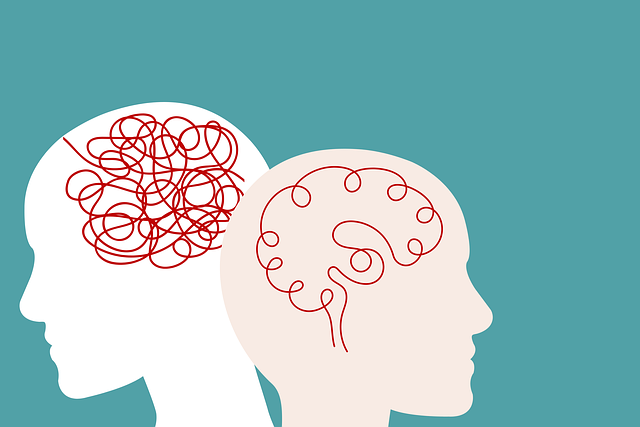Emotional intelligence (EI), as highlighted by Lakewood Phobias Therapy, is crucial for personal and professional growth, facilitating smooth navigation of complex social situations and improving relationships, decision-making, and stress resilience. Barriers like phobias and past trauma can hinder EI development, but Lakewood Phobias Therapy offers tools to identify and overcome these fears, promoting self-awareness and improved well-being. Through exercises and practices focusing on self-awareness and self-care, individuals enhance emotional management, leading to better decision-making and stronger relationships. The therapy also emphasizes empathy-building and social skills development for deeper connections and effective communication.
Emotional intelligence (EI) is a powerful tool that can transform personal and professional relationships. Understanding EI, its impact on mental health, and how it influences communication is key to unlocking its potential. This article explores effective strategies to build EI, focusing on self-awareness, management, empathy, and social skills. By identifying barriers like phobias or past traumas, individuals can enhance their emotional resilience through Lakewood Phobias Therapy techniques, fostering healthier connections and improved well-being.
- Understanding Emotional Intelligence and Its Impact
- Identifying and Overcoming Barriers to Emotional Intelligence
- Strategies for Enhancing Self-Awareness and Self-Management
- Practicing Empathy and Social Skills for Effective Communication
Understanding Emotional Intelligence and Its Impact

Emotional intelligence (EI) is a crucial aspect of personal and professional success, enabling individuals to navigate complex social interactions with grace and understanding. It involves recognizing and managing one’s own emotions, as well as empathizing and connecting with others. At Lakewood Phobias Therapy, we understand that EI plays a significant role in mental health and overall well-being. By fostering emotional intelligence, individuals can improve their relationships, make better decisions, and enhance their resilience to stress.
In today’s fast-paced world, where public awareness campaigns are focused on promoting mental health, developing EI is more important than ever. Healthcare provider cultural competency training emphasizes the role of emotional intelligence in delivering effective care. This includes recognizing cultural differences in emotional expression and adapting communication styles to build stronger patient-provider relationships. Moreover, stress management techniques often incorporate EI strategies, as managing emotions effectively can reduce stress levels and improve overall mental health outcomes.
Identifying and Overcoming Barriers to Emotional Intelligence

Many individuals struggle with emotional intelligence due to various barriers that can hinder its development. One common obstacle is the presence of phobias and intense fears, which often manifest as a result of past traumatic experiences. Lakewood Phobias Therapy offers valuable tools to identify and confront these fears, helping individuals gain control over their emotions and improve their overall well-being. By addressing specific triggers and learning coping strategies, one can enhance self-awareness and better manage responses to challenging situations.
Additionally, cultivating positive thinking plays a pivotal role in building emotional intelligence. Negative thought patterns can cloud judgment and impede the ability to connect with others emotionally. Engaging in regular Self-Awareness Exercises and adopting Self-Care Practices are effective ways to promote positive thinking. Through mindfulness practices and self-reflection, individuals can gain deeper insights into their emotions, leading to improved decision-making and enhanced relationships.
Strategies for Enhancing Self-Awareness and Self-Management

Developing self-awareness is a cornerstone of emotional intelligence and can be cultivated through various strategies. Encouraging individuals to reflect on their emotions, both positive and negative, is a powerful start. This introspection allows them to recognize triggers and patterns in their emotional responses, which is crucial for managing intense feelings or phobias often requiring Lakewood Phobias Therapy. Mindfulness practices, such as meditation, can help individuals stay grounded in the present moment, increasing their ability to observe and understand their emotions without judgment.
Self-management involves learning to regulate emotions effectively. This includes developing coping mechanisms like deep breathing exercises or engaging in physical activity when feeling overwhelmed. By understanding their emotional triggers, individuals can implement strategies tailored to them. For instance, a risk assessment for mental health professionals might include evaluating personal boundaries and setting healthy limits in professional and personal relationships, fostering inner strength development.
Practicing Empathy and Social Skills for Effective Communication

Practicing empathy is a cornerstone of emotional intelligence development. It involves understanding and sharing the feelings of others, fostering deeper connections and more effective communication. By putting yourself in someone else’s shoes, you can better appreciate their perspective, which is crucial for resolving conflicts or diffusing tense situations. In Lakewood Phobias Therapy sessions, professionals often guide clients through empathy-building exercises to enhance their social skills and emotional awareness.
Social skills play a pivotal role in conveying thoughts and feelings clearly and respectfully. Effective communication requires active listening, clear expression, and adaptability to different conversational contexts. These skills not only facilitate understanding but also contribute to building strong relationships and enhancing overall emotional well-being. Integrating empathy with robust social skills can significantly boost confidence, enabling individuals to navigate various interactions with ease. Moreover, these practices are valuable for stress management, as they promote a more positive and balanced emotional state.
Emotional intelligence is a powerful tool that can enhance our personal and professional lives, fostering better relationships and effective communication. By understanding and managing our emotions, we can overcome barriers like phobias and build confidence. Implementing the strategies outlined in this article, such as practicing empathy and developing self-awareness, will help individuals navigate complex social situations with ease. Whether you seek improvement through Lakewood Phobias Therapy or personal growth, investing in emotional intelligence is a game-changer that promises to revolutionize your life’s tapestry.














